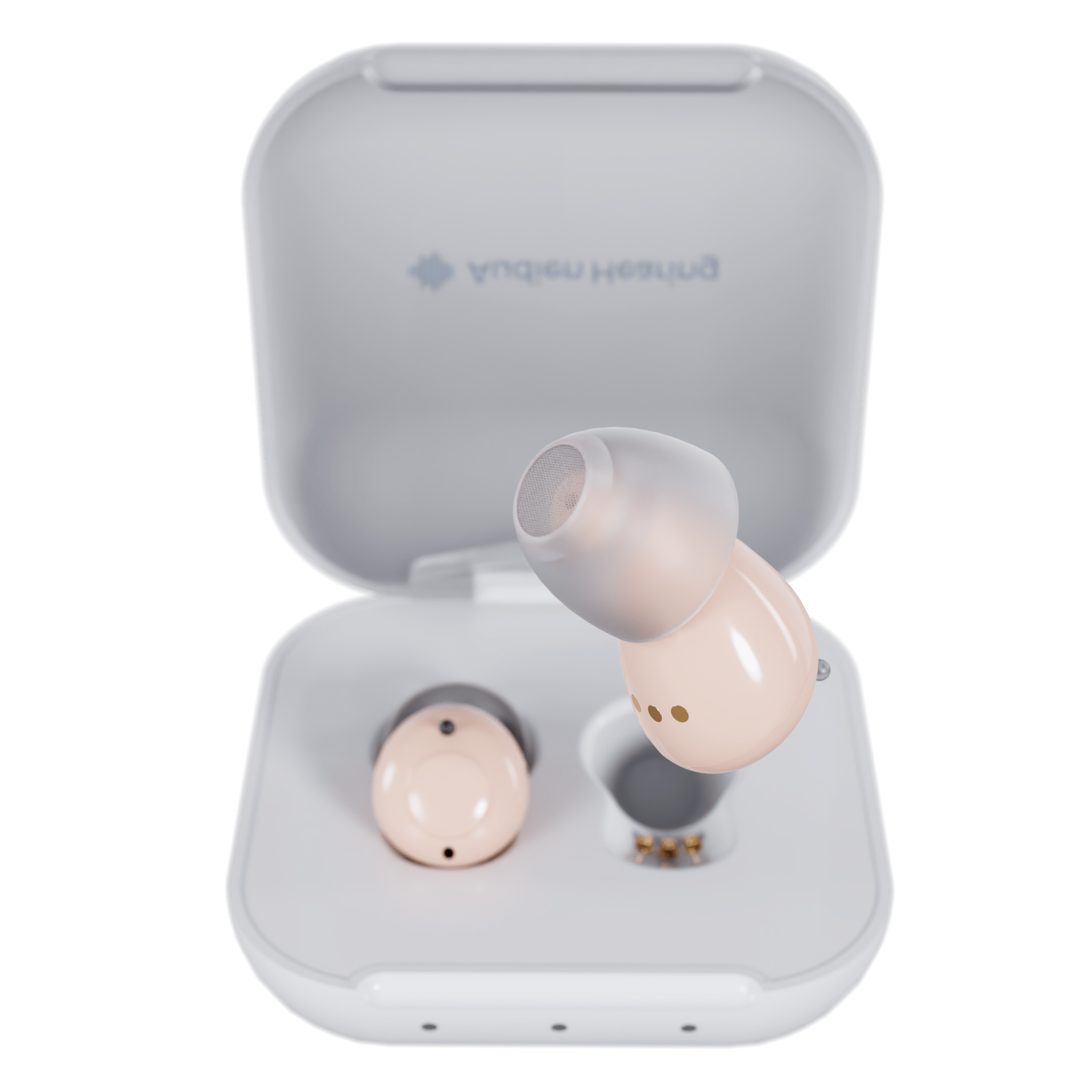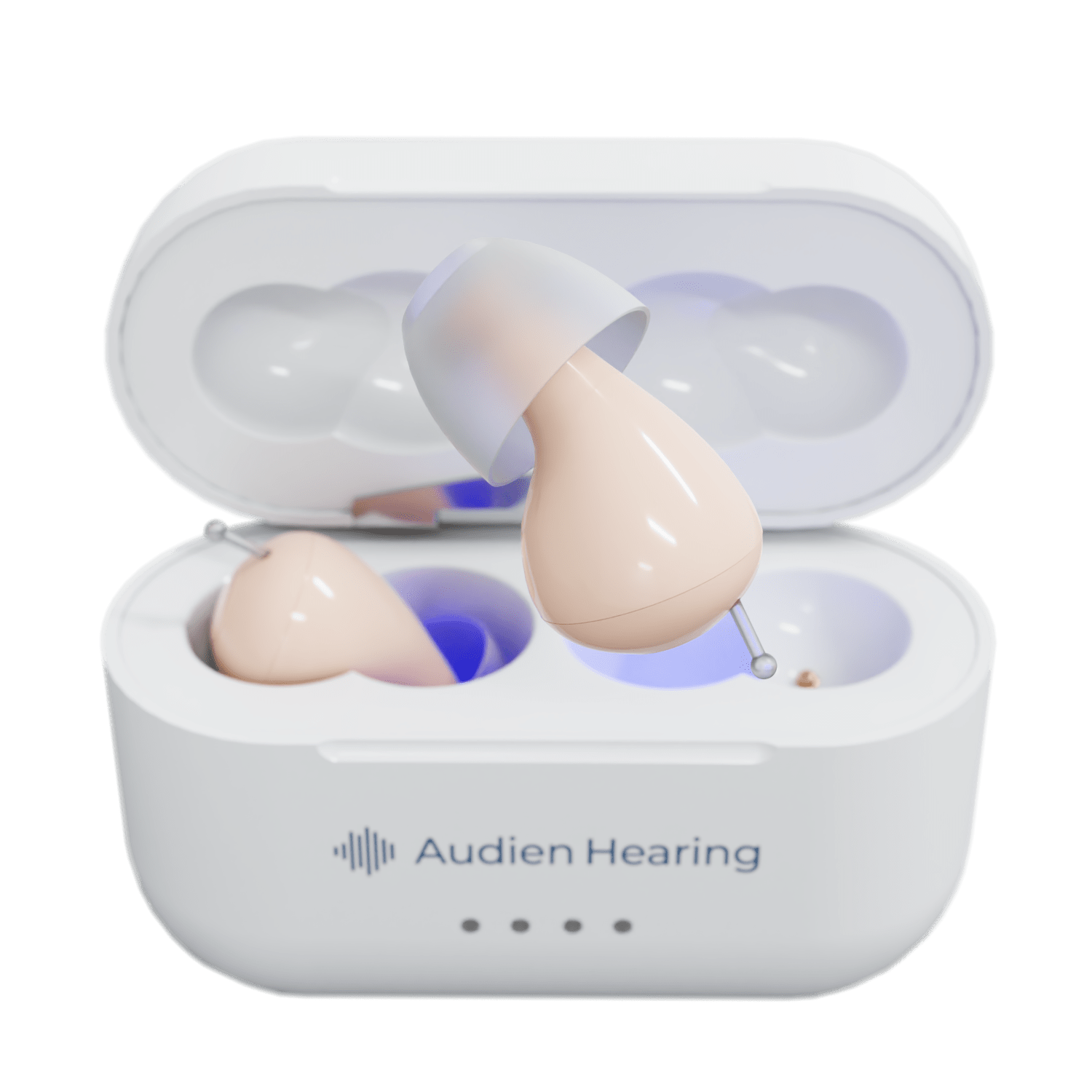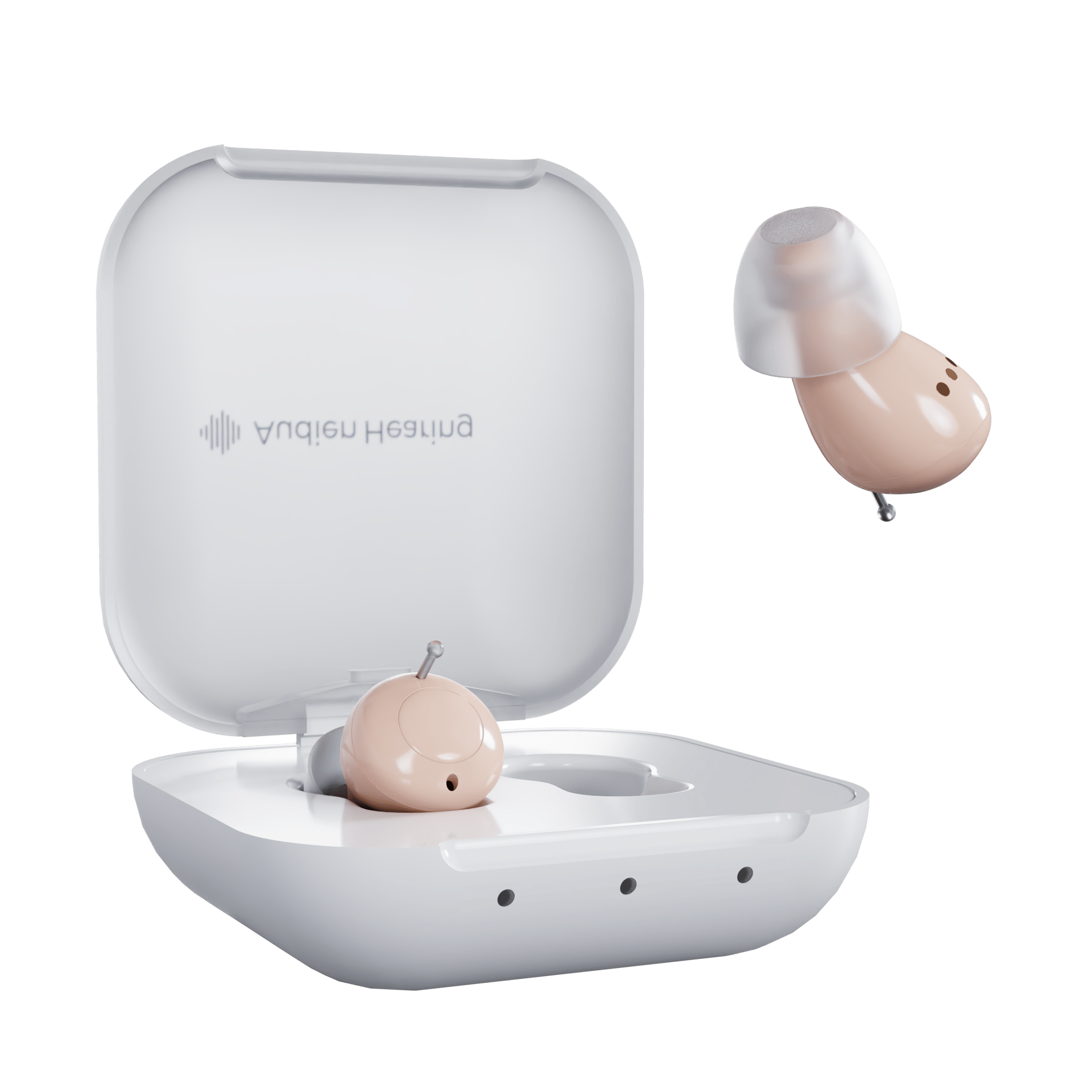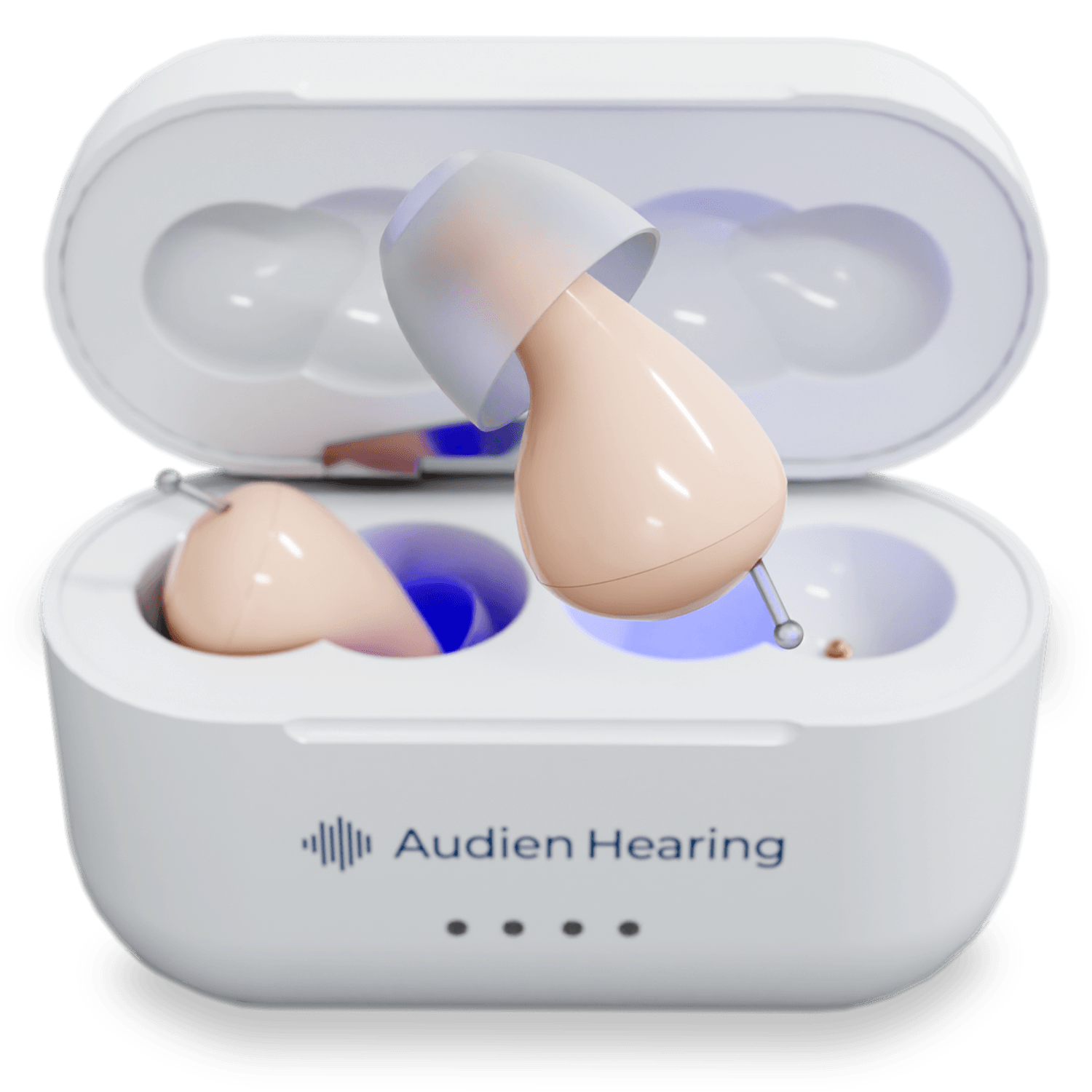Hearing loss often starts with losing the ability to hear high pitched sound. High frequencies, between 2,000 Hz and 8,000 Hz, become harder to hear as we age, but can also become hard to hear for people of any age when they start to lose hearing for other reasons. Sound waves are measured as frequencies, and higher sounds like birds tweeting or children's voices have high frequencies while deep men's voices and rumbling trucks have lower frequencies.
Am I experiencing high-frequency hearing loss? See if any of the following seem familiar.
- You struggle to hear soft consonants like S, H, or F when people speak to you.
- Speech sounds muffled on the telephone or television.
- You have trouble hearing speakers in a noisy environment.
- You find it harder to hear women's and children's voices, birds singing, or devices beeping.
- Family members tell you the television is too loud.
- Some sounds seem very loud.
Diagnosing High-Frequency Hearing Loss

If you suspect you are experiencing high-frequency hearing loss, you might visit an otolaryngologist, a doctor specializing in diagnosing and treating diseases of the ear, nose, throat, and neck. If the doctor finds no physiological cause, next get a hearing test. In a sound-treated booth at a hearing clinic by an audiologist or hearing instrument specialist, you indicate when you can hear sounds and in which ear. Your test results are plotted on an Audiogram. Frequencies are measured by hertz, and humans should perceive sounds between 20Hz and about 20,000 Hz. If you have trouble hearing sounds in the 2,000 and 8,000 Hz range, you have high-frequency hearing loss. Your loss could be mild or severe and affect one ear more than the other.
What Causes High-Frequency Hearing Loss?

Hearing loss can be caused by damage to the structures of the inner ear. When the tiny hair-like sensory hearing cells in your inner ear are damaged, you experience high-frequency hearing loss. The hair cells, known as stereocilia, translate sounds your ears collect into electrical impulses to your brain. Your brain then interprets the sound. You can lose stereocilia as you age, and many things can damage them and the other inner ear structures.
Aging
One in three adults over 65 have some hearing loss, and after 75, one in two have lost hearing. The loss occurs due to degeneration of the cochlea or associated structures of the inner ear or auditory nerve. Age-related hearing loss is called presbycusis. In rare cases, abnormalities of the outer ear or middle ear cause age-related loss. Abnormalities reduce function in the eardrum or the three tiny bones in the middle ear that carry the sound from the eardrum to the inner ear.
Noise
A single loud noise like a gunshot can cause hearing loss, and constant exposure to noise louder than 85 decibels causes damage. Exposure to this level of noise damages the sensory hair cells in your ear. Once these hair cells are damaged, they do not grow back, and your ability to hear diminishes.
Genetics
If your relatives developed high-frequency hearing loss, you might be genetically predisposed to developing it as well. Early degeneration of the inner ear components can be inherited.
Medications
Some drugs are ototoxic, which means they can harm your hearing. Ototoxic drugs include aspirin in large quantities, chemotherapy drugs, and specific antibiotics.
Diseases
Conditions common in older people, like high blood pressure and diabetes, can contribute to hearing loss. Meniere's disease, usually diagnosed in 30-50-year olds, causes hearing damage, but low-frequency hearing loss is more likely. In children, chronic ear infections can lead to hearing loss if it's untreated.
Treatment and Prevention for High-Frequency Hearing Loss
High-frequency hearing loss usually can't be reversed, but hearing aids work well for this type of loss. When you discover you are starting to lose your hearing, you should do what you can to prevent further damage.
While you can't reverse high-frequency hearing loss, you can prevent some of it. Protect your hearing from exposure to noise louder than 85 decibels. Turn down the volume on personal electronic devices and wear hearing protection in noisy environments like shooting ranges, sporting events, and live concerts. If your hobbies like snowmobiling or speedboating are loud, get some earplugs from the drug store, or, better yet, invest in noise-canceling headphones.
Health Risks of Hearing Loss

When hearing loss does not get addressed and corrected, a person's health can suffer. If hearing loss goes untreated in older individuals, cognitive decline, social isolation, and depression can result. Older adults with hearing loss tend to fall more often, as well.
A child's high-frequency hearing loss can impede speech and language development. It also may prevent a child from succeeding in school.
High-frequency hearing loss, common for older adults, can be helped by hearing aids and mitigated by common-sense ear protection. For younger adults and children, early detection and treatment make a huge difference in their future health.













